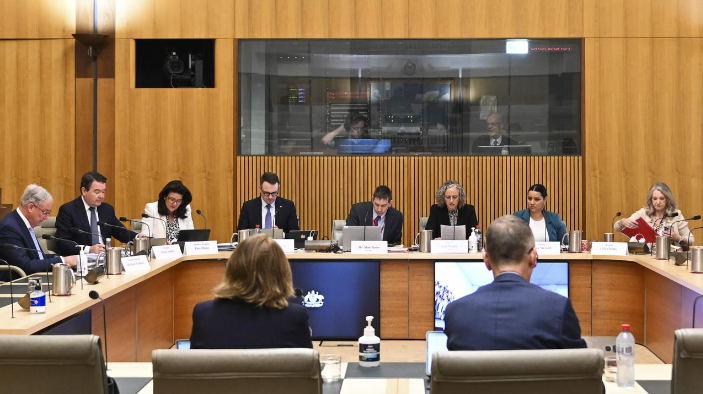
Reserve Bank governor Michele Bullock has maintained the central bank has a “low tolerance” for price pressures to stay higher for longer.
Hotter-than-expected quarterly inflation data, released on Wednesday by the Australian Bureau of Statistics, showed inflation in September accelerated to 1.2 per cent, up from 0.9 per cent in June.
Many economists expect the RBA will hike rates to 4.35 per cent when it meets for its board meeting on Melbourne Cup Day.
Speaking at senate estimates on Thursday, Ms Bullock admitted the inflation numbers were a “little higher” than the central bank had been forecasting but was expected given recent economic data.
“It was pretty much where we thought it would come out, given the information we’ve come into since then,” she said.
Services inflation levels not ‘comfortable’: Bullock
The RBA governor noted that while inflation for goods was trending downward, she said services inflation – a measure that more closely reflects surging rental costs and elevated power bills – remained persistently high.
“While goods price inflation is easing quite a lot as supply issues unwind consistently, we‘re seeing that although services inflation is declining, it’s still higher than we’re comfortable with and it’s also reasonably persistent,” she said.
“When I say persistent, it means that the inflation in those sorts of components of the CPI tends to last longer.
“And this is a trend we’ve seen overseas as well, that goods price inflation is easing quite a lot as supply issues unwind.”
Ms Bullock said electricity prices, rents, and wages were all drivers of services inflation.
Nothing new on ‘low tolerance’ for prolonged prices
Ms Bullock noted the RBA’s recent meeting minutes which said the central bank had a ‘low tolerance’ for prolonged period of high inflation was not new.
“All I was trying to convey really was the same thing we’ve been conveying all along,” Ms Bullock said in questions from Liberal Senator Jane Hume.
“The longer that inflation remains outside the target band, the more likely it is that inflation expectations might adjust to that.”
Markets viewed the inclusion of “low tolerance” in October as more hawkish than previous minutes.
RBA ‘still analysing’ fresh inflation data
Ms Bullock would not be drawn on the influence of Wednesday’s inflation data on the RBA’s November rates decision and says the central bank is still analysing the figures.
“We‘re still analysing the numbers at the moment. I wouldn’t like to say more or less likely. We’re still looking at it,” Ms Bullock said in questioning from Greens senator Nick McKim.
“[The September quarterly CPI] has confirmed what we’ve been saying all along.
“As I said that the persistence is on the services side, and the goods side is responding, but I think that’s all I’d say from this point.”
‘Big risk’ from China’s property sector
While Ms Bullock said spiralling debt in China’s embattled property sector didn’t appear to be “dramatically impacting” the Australian economy, she conceded it continued to pose a “big risk”.
“At the moment, demand for iron ore is holding up very well. So the price is holding up so our exports are holding up well to China,” she told Liberal Senator Dean Smith.
“The government has a long standing view that the leverage in the property sector in China is not good, and it needs to be reduced.”
However Ms Bullock noted that that assistance from Beijing so far had focused on supporting property buyers rather than creditors who had been “less looked after”.
“I can’t see personally that they’re going to be bailing out in any sense these property companies. The property sector had driven growth in the world’s second largest economy for many years,” Bullock said.
Bullock backs in Chalmers
In further questioning from Senator Hume, Ms Bullock said Treasurer Jim Chalmers’ fiscal strategy was not adding to inflationary pressures.
“I actually think that what they’re doing at the moment is good,” Ms Bullock said.
“At the moment, the decision has been made to basically bank the revenues. And I think that’s pretty positive.”
Ms Bullock added that increased tax revenues had been saved, not spent, was “helpful”. (Jack Quail)



